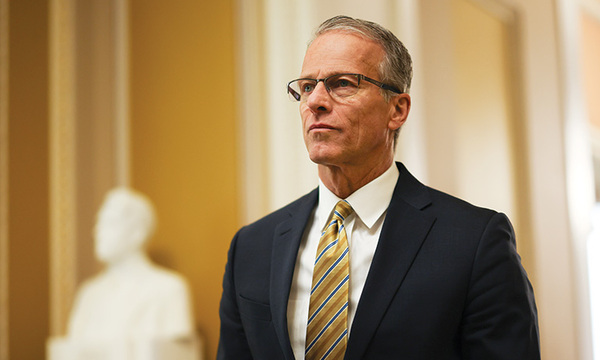After a yearlong national search, Biola’s Rosemead School of Psychology has a new dean: Clark Campbell, who assumed the role in August.

Campbell, who holds degrees from Wheaton College (B.A.) and Western Seminary (M.A., Ph.D.), is a widely respected psychologist with more than 25 years of clinical experience. He served for the past 19 years at George Fox University in Oregon, most recently as professor of psychology and director of clinical training. In addition to his new role as dean, Campbell is also president of the National Council of Schools and Programs of Psychology.
Biola Magazine asked him about his plans for the school.
After so many years in Oregon, what attracted you to Rosemead (besides the weather, of course)?
I was most attracted to Rosemead because of its strong national reputation for excellent education and training of psychologists who are committed to the Christian faith. I also appreciate the way Rosemead is positioned within Biola University — offering the Ph.D., as well as the Psy.D., and a very strong undergraduate psychology major.
What are you most looking forward to in this new role?
In addition to working with excellent faculty and staff, I look forward to working with a school that operates two counseling centers and publishes a scholarly journal [the Journal of Psychology and Theology]. I would like to see Rosemead continue to develop the quality of its programs and pursue development of other similar programs that will enhance the overall ministry and effectiveness of the school.
What areas of research and practice have most interested you during your career?
When I started practice I was the only psychologist in the county where my wife and I lived. It was kind of like being a country doctor. I served as the school district psychologist, did hospital consultations, evaluated geriatric patients and did some home visits. Since then, I have focused my clinical work on adults, primarily working with anxiety, depression and relational issues. From a research perspective, most of my work has been on training and professional issues. I have written a fair amount on rural psychology, which seems ironic now that I am in an urban area. Additionally, I have co-authored a book on integration of psychology and Christian faith.
One of Rosemead’s hallmarks is its integration of psychology with theology. From your experience, why is it so valuable to be trained in both?
Clinical psychologists deal with people who are suffering. When we suffer, we ask existential questions that have deep theological implications. Most Americans ascribe to the Christian faith and therefore struggle with these integration issues at a personal level. A strong theological background helps psychologists address those issues in a thoughtful manner.
How are you planning on enjoying your new Southern California setting when you’re not in the office?
My wife, Donell, and I are enjoying the sunshine, and we’re looking forward to many of the outdoor sites and cultural events available in California. A few years ago when our oldest son graduated from high school, he and I rode our motorcycles from Oregon down the coast highway to Monterey and watched the motorcycle races at Laguna Seca. I look forward to riding my motorcycle in some of the beautiful areas of Southern California.
 Biola University
Biola University


